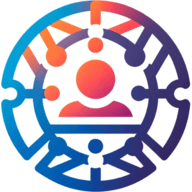The advent of Artificial Intelligence (AI) has revolutionized various industries, and staffing and recruitment are no exceptions. This blog post delves into the profound impact AI has on these sectors, transforming traditional practices into more efficient and effective processes. We will explore how AI is reshaping job advertising, candidate sourcing, screening, and interviewing, and the implications for recruiters and job seekers alike.
AI and Job Advertising
AI has significantly influenced job advertising, making it more targeted and efficient. It enables recruiters to reach the right candidates by analyzing vast amounts of data, including job descriptions, candidate profiles, and market trends. AI can predict the success of a job advert and suggest improvements, ensuring that recruiters attract the right talent.
Moreover, AI can automate the job advertising process, saving recruiters valuable time. It can post job adverts across multiple platforms, track their performance, and adjust them based on real-time data. This automation not only streamlines the process but also optimizes the use of resources.
AI in Candidate Sourcing
AI is revolutionizing candidate sourcing by automating and enhancing the process. It can scan numerous online platforms, including job boards, social media, and professional networks, to find potential candidates. AI can analyze candidate data, such as skills, experience, and qualifications, and match them with job requirements.
AI can also predict a candidate's suitability for a role based on their online behavior and interactions. It can identify passive candidates who may not be actively looking for a job but are a good fit for a role. This predictive analysis can help recruiters source the best talent in the market.
AI in Candidate Screening and Interviewing
AI is transforming candidate screening and interviewing, making them more objective and efficient. It can analyze resumes and cover letters, identifying key information and comparing it with job requirements. AI can screen out unqualified candidates, saving recruiters time and effort.
AI can also conduct initial interviews using chatbots or video interviewing platforms. It can ask pre-set questions, analyze candidate responses, and score them based on predefined criteria. This automation can streamline the interview process and ensure that only the most suitable candidates proceed to the next stage.
Implications for Recruiters
The integration of AI into staffing and recruitment has significant implications for recruiters. It can automate routine tasks, allowing recruiters to focus on more strategic aspects of their role. AI can enhance decision-making by providing data-driven insights, improving the quality of hires.
However, the use of AI also presents challenges. Recruiters need to understand how AI works and how to use it effectively. They need to ensure that AI tools are fair and unbiased, and that they comply with data privacy regulations. Despite these challenges, the benefits of AI in staffing and recruitment are undeniable.
Implications for Job Seekers
AI also has implications for job seekers. It can make the job search process more efficient by matching candidates with suitable roles. AI can provide personalized job recommendations based on a candidate's profile and preferences.
However, job seekers need to adapt to the use of AI in recruitment. They need to understand how AI screens and evaluates their applications. They need to ensure that their online profiles and resumes are optimized for AI tools. Despite these challenges, AI can enhance the job search experience and increase the chances of finding the right job.
The Future of AI in Staffing and Recruitment
The use of AI in staffing and recruitment is likely to increase in the future. AI can become more sophisticated, capable of performing more complex tasks and making more accurate predictions. It can integrate with other technologies, such as virtual reality and blockchain, to further enhance recruitment processes.
However, the future of AI in staffing and recruitment also depends on how well we manage its challenges. We need to ensure that AI tools are fair, transparent, and accountable. We need to develop ethical guidelines and regulations for the use of AI in recruitment. If we can do this, the future of AI in staffing and recruitment looks promising.
Wrapping Up: AI's Role in Reshaping Staffing and Recruitment
The impact of AI on staffing and recruitment is profound, transforming traditional practices into more efficient and effective processes. AI is reshaping job advertising, candidate sourcing, screening, and interviewing, with significant implications for recruiters and job seekers. Despite the challenges, the future of AI in staffing and recruitment looks promising, promising a more streamlined, data-driven, and effective recruitment process.

